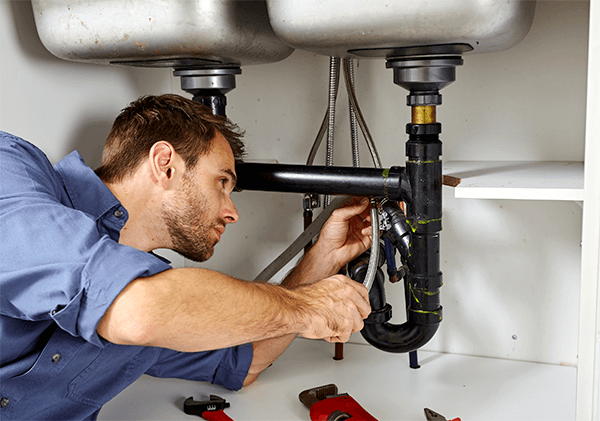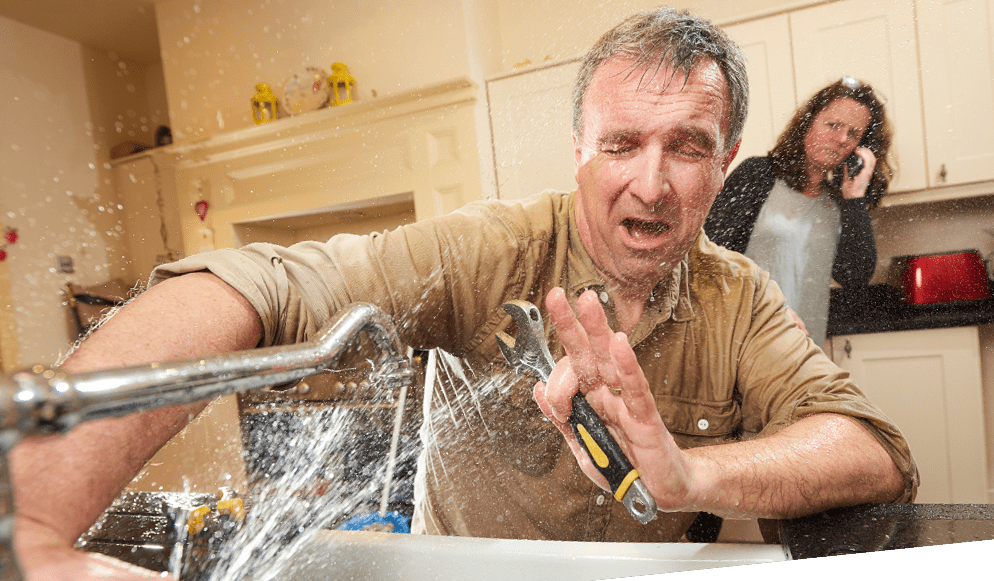Immediate Fixes for Pipe Problems: Steps to Take Until A Plumber Arrives
Immediate Fixes for Pipe Problems: Steps to Take Until A Plumber Arrives
Blog Article
Each person seems to have their unique way of thinking when it comes to What to Do While Waiting for an Emergency Plumber.

Pipes emergencies can strike any time, causing anxiety and potential damage to your home. Whether it's a ruptured pipeline, a blocked drainpipe, or a dripping faucet, understanding just how to take care of the situation until an expert plumbing technician shows up can conserve you from more difficulties. This write-up provides important emergency situation plumbing tips to assist you reduce damages and restore control during a pipes crisis.
Switch off the Supply Of Water
The very first step in any type of plumbing emergency situation is to turn off the water supply. For local problems, such as a leaking tap or bathroom, turn off the shutoff near the component. In the case of a major leak or burst pipeline, situate your home's major water shut-off shutoff and transform it off quickly. Understanding the place of these valves in advance can conserve valuable time during an emergency.
Address Tiny Leakages with Temporary Repairs
Little leaks can promptly end up being significant issues if left unchecked. Make use of these short-term solutions until specialist help shows up:
While these fixes aren't long-term, they can aid minimize water loss and damage.
Unclog Drains Pipes Securely
A clogged drain can be a discouraging and unpleasant concern. Here's just how to tackle it:
If these approaches don't work, stay clear of utilizing extreme force, as it might aggravate the blockage.
Manage Overflowing Toilets
An overruning toilet can create prompt turmoil. Right here's what you ought to do:
Shut down Your Hot Water Heater
In specific emergency situations, such as a burst pipeline, it's smart to shut off your water heater. This prevents getting too hot or damages to the system when water stops flowing. Turn off the power supply to the water heater (electrical or gas) and allow it cool off to avoid potential threats.
Momentarily Quit a Burst Pipe
A ruptured pipeline can result in significant water damages in mins. To alleviate the issue:
Call a specialist plumbing instantly to resolve the issue permanently.
Deal With Frozen Pipes Very Carefully
In chillier environments, frozen pipes are a typical emergency. If you believe a frozen pipeline:
Protect against Further Damage
Taking fast activity to minimize damage can save you money and time in the future. Here's exactly how:
. Have an Emergency Plumbing Kit
Prepare a fundamental plumbing emergency situation set to take care of small concerns effectively. Your kit should include:
Having these tools on hand can make a significant distinction in your capability to handle emergencies.
Know When to Call a Professional.
While quick fixes can aid momentarily, specific plumbing issues call for instant expert attention. Call a plumber if:.
Without delay calling a professional makes certain the problem is dealt with appropriately and stops further difficulties.
Final thought.
Plumbing emergency situations can be overwhelming, yet with the best knowledge and devices, you can manage the scenario efficiently up until help gets here. By turning off the water system, attending to little leakages, and using momentary solutions, you can minimize damages and maintain your home safe. Remember, these suggestions are momentary solutions; always seek advice from a qualified plumber to deal with the source of the trouble. Preparation and quick thinking are your finest allies in any kind of plumbing emergency.
8 Helpful Tips for Managing Plumbing Emergencies at Home
If your plumbing system hasn’t failed once, wait for it because almost everyone has a story to tell. Sometimes, it could be simple emergencies such as a leaking pipe, a blocked cistern, or even a big burst pipe. In situations like this, you need to have some handy tips to save you some money and from possible damages.
Take care of minor issues early.
Sometimes, you could have avoided an emergency by taking proactive measures while it was still early. Some major plumbing emergencies can be a result of an ignored minor issue. We recommend that you have items like plumbing tapes and other related items. A plumbing tape can allow you to manage minor leaks before the plumber arrives.
Cut off the water supply.
This tip is essential in almost any type of leakage problem. For problems like minor leakages in the toilet or kitchen, turn off the supply that takes water to the affected pipes. If the leakage is a major pipe, you must shut off the supply valve to the entire building. This will help you avoid flooding your home and neighbors if you share a flat.
Know your plumbing system
Folks typically move into a new apartment without understanding the water supply around the building. This can prove disastrous if a water emergency arises and the plumber is far away. The previous tip will prove useless if you don’t practice this one. More importantly, know where your water shut-off valve is located – you’ll need that knowledge to prevent potential home floods.
Have some common handy tools
There are lots of plumbing emergencies that you can handle without hiring a plumber. That’s why you must keep some tools available always. Some tools that you can use to fix simple plumbing emergencies easily include plumbing tapes, screwdrivers, thread seal tapes, plungers, pliers, tape measures, and rubber gloves.
Insulate your pipes from cold
You’ll save yourself from many plumbing expenses if you protect your water pipes from the cold. This is because of the harmful effects that cold weather can have on your pipes. During winter, your pipes can burst from being overly expected to freezing temperatures. So, make sure insulators are there to keep the pipes working correctly.
Avoid practices that will clog your toilet.
Many people indulge in practices that can damage the plumbing system of the entire building. One of these is when they use their toilet to dispose-off garbage. They flush all kinds of things, such as paper towels, bandages, hairs, female sanitary products, etc., down the toilet. This will block your toilet in the long run, incurring unnecessary expenditures. Dump such waste in the trash instead.
Check your dials regularly.
Sometimes, there could be leakages in your home without noticing them in time. So, constantly monitor your water meter dial. If the dial is reading when there is nobody using water, this is an indicator that there is leaking. Check for leaks immediately. Call a plumber as soon as possible if you can’t find any.
https://www.constructionplacements.com/8-helpful-tips-for-managing-plumbing-emergencies-at-home/

I have been very taken with What to Do While Waiting for an Emergency Plumber and I really hope you enjoyed our article. If you please take the opportunity to distribute this blog entry if you enjoyed reading it. Thanks a bunch for being here. Revisit us soon.
Call Today Report this page